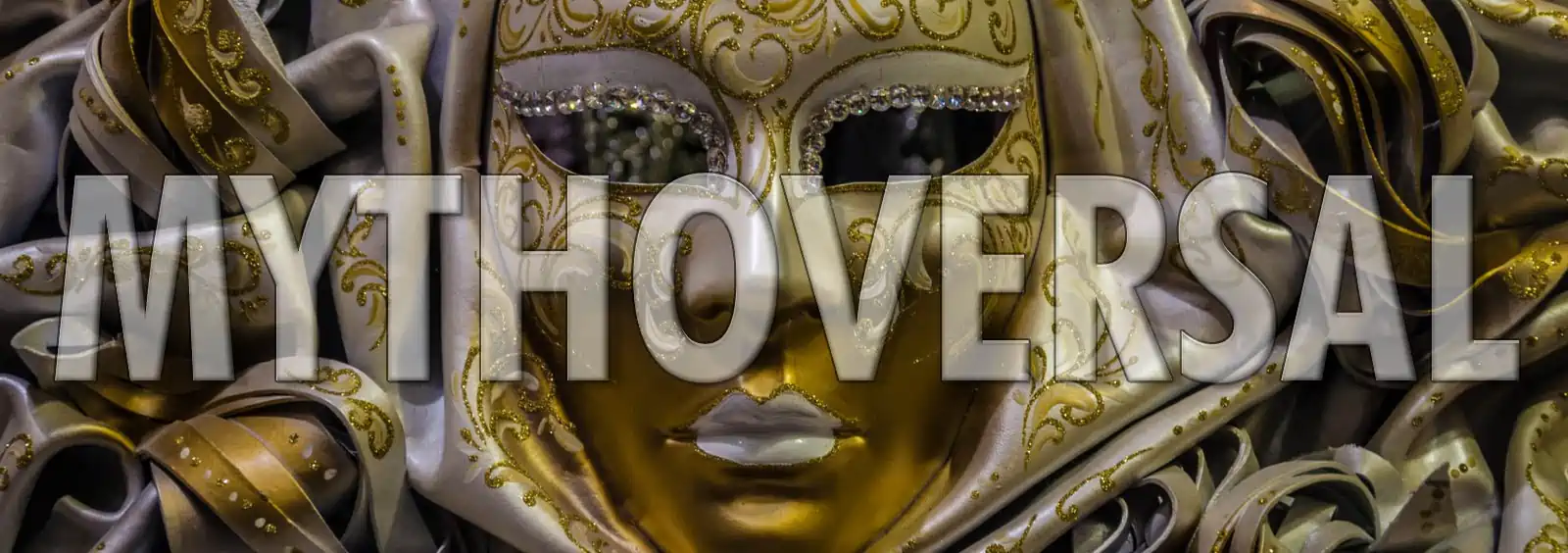
Mythoversal
On This Page:
Elsewhere:
Inspiration
Created by
Scope
The motivation behind building Mythoversal
Mission and Vision

The Mythoversal Project
"Mythoversal is dedicated to broadening representation in retold mythology by amplifying historically marginalized identities and restoring traditions erased by centuries of gatekeeping."— Mythoversal Mission Statement
Vision and Roadmap
Imagine a mythic universe, a Mythoverse in which authors and illustrators can play in the sandbox of world mythology, creating books, games, and video projects for the enjoyment and enlightenment of modern audiences. Our entry point into the Mythoverse is Mythoversal Hellas, which disrupts and deconstructs Greek, Hellenic, Roman, and Byzantine sources to create a mythic environment that's inclusive, inviting, relevant, and welcoming. As we enter the second year of the Mythoversal Project, Author-in-Residence Greg R. Fishbone is disrupting the Trojan War with new versions of the Iliad and the story of Penthesileia. In the future, we plan to add new creators, explore new cultures, and create new projects in a variety of media.The goal of the project
"Our entry point into the Mythoverse is the land of Mythoversal Hellas, where we disrupt and deconstruct Greek, Hellenic, Roman, and Byzantine sources to create a mythic environment that’s inclusive, inviting, and relevant. The setting provides a window into the past and a mirror for today."— Mythoversal Hellas
Mythoversal's Unique Selling point
Our Shared Heritage and Tradition
Stories set in the Mythoverse carry forward traditions that have been crossing cultural boundaries for thousands of years, appealing to audiences across centuries of time. The Mythoverse brings new life to characters that have been enjoyed since the earliest recorded history of the human race, especially spotlighting some of those whose stories have gotten less attention elsewhere.
Theme
Genre
Genre & Tone
Bronze Age low-magic fantasy with supernatural elements.
Most Greek and Roman mythology is set in the Bronze Age Mycenaean culture with supernatural elements that are integral to the story world. The deities of Greek mythology are personified to have human motives and emotions, making them potential characters as they provide a bridge between mortal society and aspects of nature and the human psyche.Reader Experience
A Supernatural World
The world is full of unexpected magic and danger. Every river has a river god. Many plants are descended from transformed humans with tragic tales. Every pool of water may include a bathing goddess who will torture and kill any unwary viewers. Aspects of nature, elements of the human spirit, and metaphysical concepts are all embodied in entities that need their egos stroked, or who can become angered for unexpected reasons.A Source of Philosophy
Central to many myths is the relationship between Fate and free will, negotiation with the gods, and the tiered system of deities, demigod heroes, and regular mortals. Character agency is therefore an open question, a constant struggle, and a source of philosophical musings.Reader Tone
A Matter of Tone
The Mythoverse walks the line between darkness and brightness, sometimes swerving heavily one way or the other. In mythology, horrible things can happen to good people, but even more horrible things tend to happen to bad people. There is also joy, light, and glory to be had by the few able to earn them, and we will be providing happy endings wherever possible.Focus
Major Themes
Religion
Religious influence will be an important theme in a world where gods are numerous, interfere in mortal affairs, pick favorites, choose sides in mortal disputes, and become jealous and destructive if they perceive any disrespect. Each culture, kingdom, and city will have a hierarchy of priests and temples available in an attempt to influence the gods. Each household also will have its altars, gods, and rituals. Access to these systems will be a result of and source of contention among members of the society.Gender
Gender relations were an important focus in myths formed in strongly patriarchal societies, and continue to be a major topic when these tales are modified and retold for modern audiences. In Greek and Roman mythology we find the gender reassignment of Tiresias and others, and exploration of gender roles in the stories of Pentheus and the Amazon warriors.Rule of Law
The rule of law among the gods of Mount Olympus mirrors the rule of law within a kingdom, with the king and queen taking on the roles of Zeus and Hera. Mortals organize themselves according to the model they have for the organization of the universe. Alternately, some would say that they imagine the universe to be a metaphor for the physical world."The dynamics of power at work in these stories is still at the core of our modern societies."— Greg R. Fishbone
© 2020-2021 Greg R. Fishbone, except as noted.
On Twitter @InMythology
Proudly Powered by World Anvil
GET YOUR FREE STUFF!
First, grab the exclusive Olympic-themed short story, "Hercules Meets His Match," and a free subscription to the weekly Mythoversal Newsletter. Then, head to Mythoversal Thebes for three free episodes of Becoming Hercules, a diverse coming-of-age serial that brings Greek mythology back to its multicultural roots!
